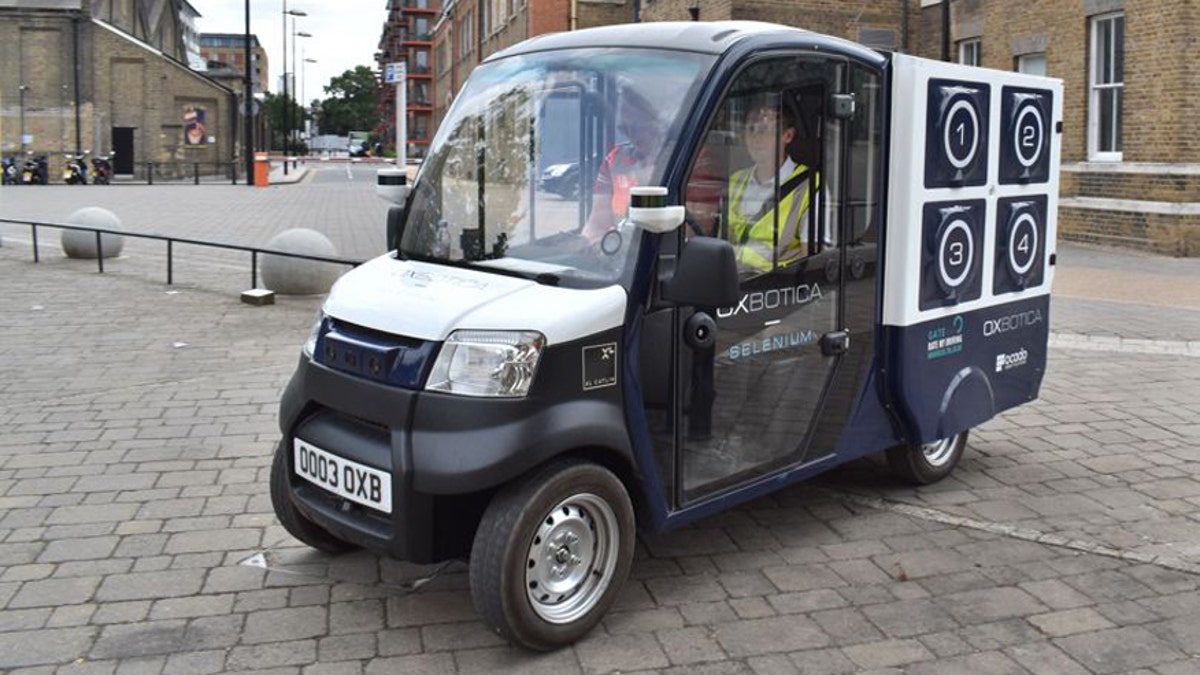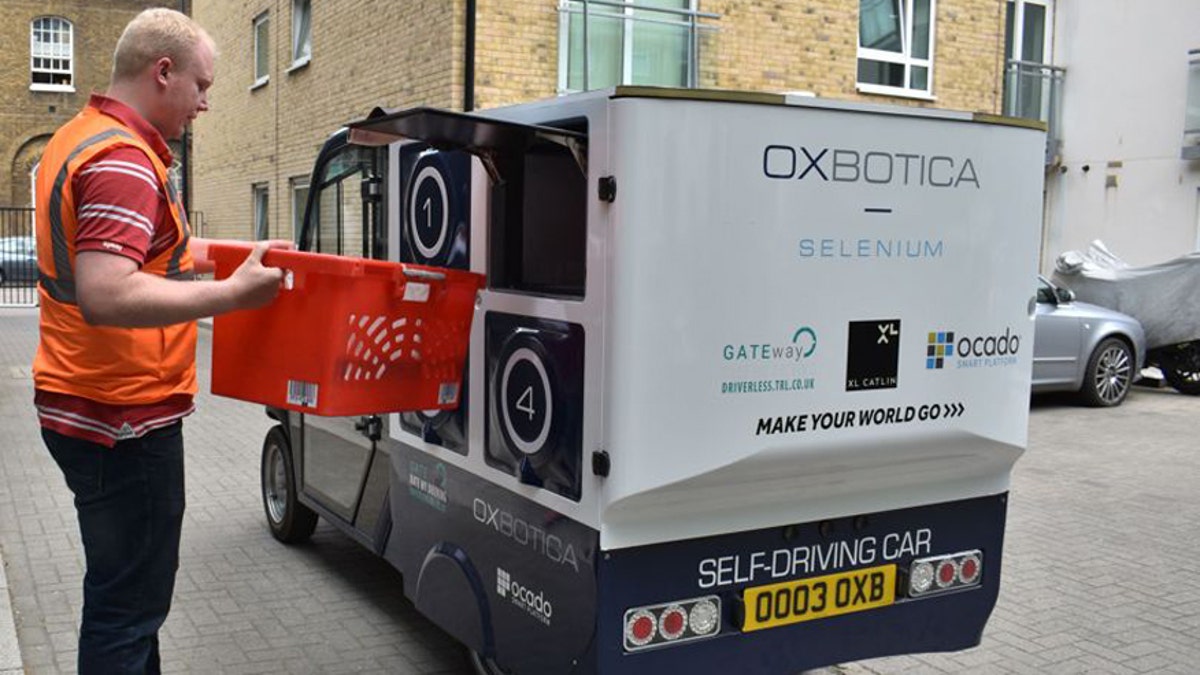
Ocado
A British online grocery store is aiming to launch the nation's first driverless delivery service.
Ocado, which launched 17 years ago and makes deliveries from a string of warehouses across the country, has just started testing its first self-driving "CargoPod" truck built by U.K. tech firm Oxbotica.
The 10-day trial involves the diminutive delivery vehicle trundling around a small part of London, bringing ordered groceries to the doors of existing customers.
Equipped with the usual array of sensors, lasers, and cameras seen on other self-driving vehicles, the electric CargoPod has a top speed of 25 mph and can carry a total weight for 128 kg.
More From Digital Trends
It's designed primarily for short journeys or last-mile deliveries in urban or residential areas, taking relatively small orders to customers rather than weekly or monthly supplies.
The autonomous CargoPod contains eight numbered compartments in the back, each of which can be unlocked by the customer at the press of a button. The current trial includes two engineers accompanying the CargoPod on its daily runs, both monitoring the truck's progress and ensuring nothing calamitous happens while it's puttering along some of the capital city's streets.

Oxford-based Oxbotica, which has already carried out a number of other trials using its core technology, believes it has "the potential to transform our cities, reducing congestion and making transport safer."
Once it perfects its driverless grocery delivery vehicle, probably in the next four years, Oxbotica and Ocada plan to sellthe system to other retailers around the world. However, as in the U.S., developers of self-driving technology have plenty of regulatory hurdles to jump over, but as the capabilities and reliability of the driverless vehicles improve, those hurdles should gradually diminish.
While Oxbotica is focusing on last-mile deliveries, the likes of Waymo and Uber are developing self-driving trucks big ones to transport large amounts of goods over much greater distances. Waymo, formerly operated by Google, has already made significant progress with its driverless-car technology, and recently revealed that it's working to incorporate it into trucks. Uber, meanwhile, last year drove a semi full of Budweiser along more than 100 miles of freeway using driverless technology developed by Otto, a tech company that it purchased for $680 million in 2016.